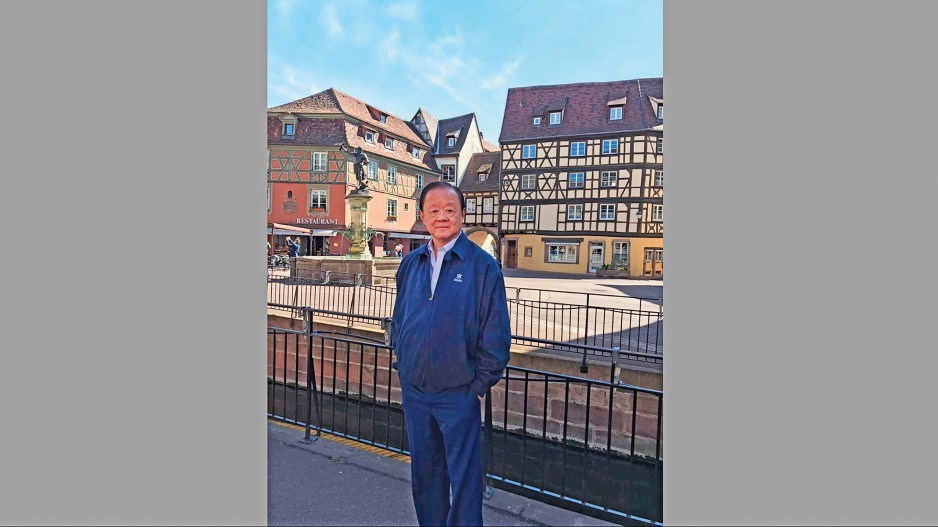By Chuck Chiang
When Oei Hong Leong visited Vancouver in the late 1980s, putting down roots was the furthest thing from his mind. But as with many visitors to Vancouver, Oei’s plans changed quickly after he landed.
“I came and I fell in love with the city,” Oei said. “The friendliness of the people. The natural beauty of the environment. Everyone getting along in a multicultural setting. I almost immediately made up my mind to retire here.”
Still, investment was not in the cards originally. But Oei – a business-world legend in Asia for turning around 200-plus companies in China during the economic boom in the 1990s – eventually saw an opportunity, and bought Plaza of Nations from Concord Pacific in 1990 (then owned by Hong Kong mogul Li Ka-shing) for $40 million. Oei continues to own the property to this day through his Vancouver-based holding company, Canadian Metropolitan Properties Corp.
And despite the property now being mired in a series of lawsuits and countersuits over how it should be developed, Oei remains happy with his decision to choose Vancouver as his second home (the magnate and his family split time between B.C. and Singapore). He added that he isn’t alone in being drawn to Vancouver by its lifestyle, saying the municipal and provincial governments should engage these high-income immigrants not only to build a more robust economy, but also to strengthen social support for those in need.
“My father has a saying: ‘It’s wealth only when you use it. It’s inheritance if you don’t,’” Oei said. “It’s good business to put money back into the community, because that’s where the money originally comes from. No one can succeed without the people around them, so you always have to keep others in mind.”
Oei said his belief that capital gains should be used to create social gains stems from his upbringing. Born to a prominent overseas Chinese family in Indonesia (his father is Eka Tjipta Widjaja, founder of Southeast Asian conglomerate Sinar Mas Group), Oei spent most of his teenage years in China, where he worked extensively with farmers and rural residents in remote Shanxi province before returning to Indonesia to help with family business.
His Chinese experience is also a major source of Oei’s wealth; he was among the first foreign investors to enter China after the country opened its doors to investment in the 1980s.
Through China Strategic Holdings, Oei bought more than 200 businesses ranging from rubber tire manufacturers and brewers to pharmaceutical and electronics makers.
Many of the businesses were failing at the time of purchase, and Oei’s introduction of efficiency in production and distribution logistics gained him a reputation as a “turnaround expert” in the Asian market.
Besides making sure all his investments had an optimal location – projects of interest were all located in urban cores, with easy access to labour, shipping, technology and the government approval apparatus – the key to his business strategy is rooted in trust between key stakeholders to ensure everyone will do their part.
That means any business success story, Oei said, must start with a self-assessment by the proprietors themselves.
“It’s all about personal integrity,” he said. “The responsibility [for] success of the business must be shared. Others must be able to trust me to do what I promised to do, just as I have to be able to trust others to follow through on their responsibilities. My father actually started out his entrepreneurial venture with a failure and incurred a lot of debt, and he would insist on paying them on time and to the full amount, even if it meant selling our most treasured family heirlooms. That was a valuable lesson for me.”
Today, Oei has largely retreated from daily business, selling his shares in companies like China Strategic. Instead, he is focusing on charity through his personal foundation, which has contributed to projects like disaster relief, access to potable water and schools in China and other developing Asian markets.
He is also a strong proponent of Asian Buddhist art. Oei, who has a personal net worth of $1.2 billion, has a 50,000-piece personal collection that is housed partially in a private museum in Singapore.
Oei said his next big project for Vancouver, as soon as he finds a suitable site and works out other details, is a Buddhist art museum in the city that he hopes will become a “landmark” that draws visitors from all over the world. He also expressed interest in building social housing in the city, although he has yet to approach city officials on that topic.
“I love Vancouver, and I really believe there are others like myself who want to contribute to the community,” Oei said. “A museum for Buddhist art fits the city so well, because it’s really more of a philosophy on how to live life harmoniously with others, regardless of cultural or religious background. … Yes, we can be a link for B.C. to lucrative markets like China or Southeast Asia, but it’s more important that we dedicate ourselves to contributing here.” •




